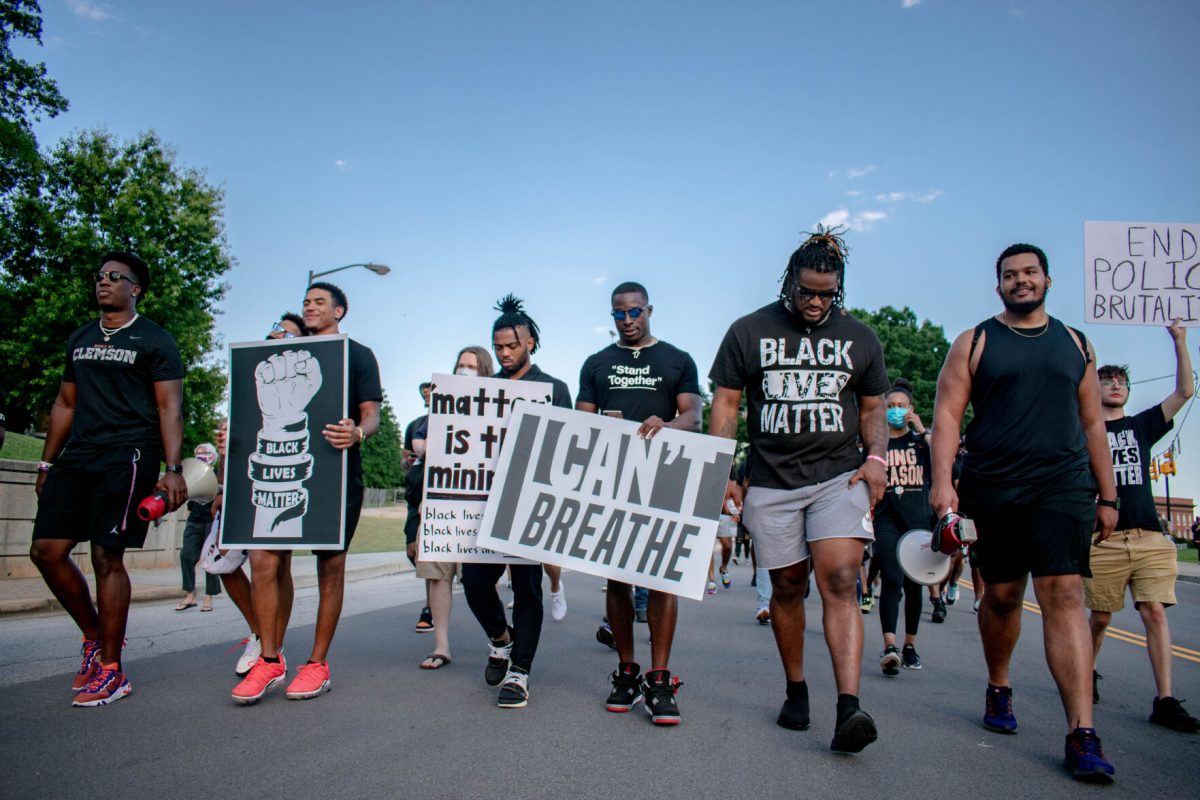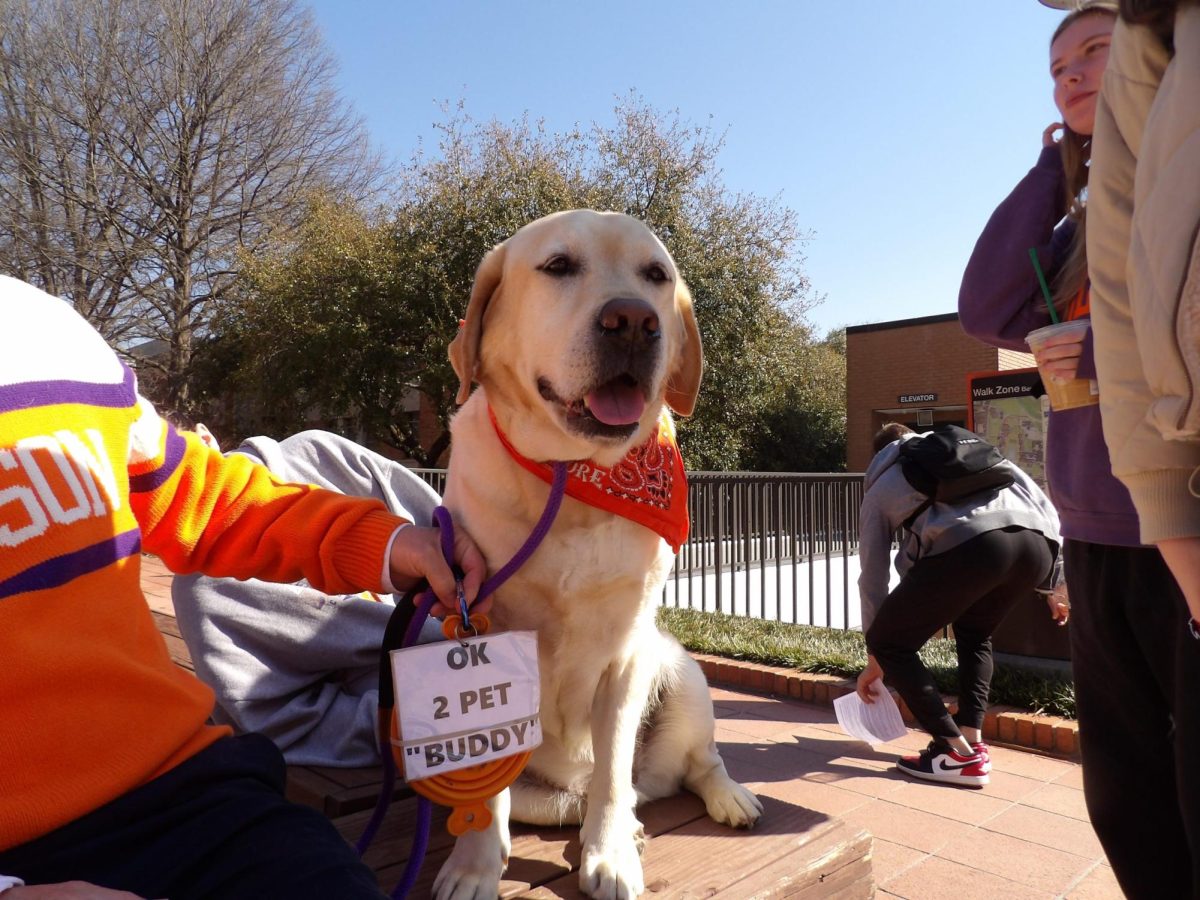A recent survey of 55 colleges and universities in the United States has ranked Clemson University No. 36 for free speech. It assigned Clemson a red speech code, indicating that university policies restrict students’ First Amendment rights to freedom of speech and expression.
The report shows, however, that student perceptions of free speech depend heavily on their political leanings. For example, Clemson was ranked No. 12 on the list by conservative students and No. 49 by liberal students.
The survey was conducted by College Pulse, RealClearEducation and the Foundation for Individual Rights in Education (FIRE). Colleges were assessed according to several factors, including openness to discuss difficult topics on campus; tolerance for allowing controversial speakers on campus; and self-expression, whether students feel the need to withhold their ideas because of how they could be received.
The report is based on the perspectives of currently enrolled students and includes numerous quotes from students on both sides of the political aisle.
“There have been several instances in my English class where a very liberal perspective or point of view has been projected or expressed by my professor that I do not agree with…I of course couldn’t say anything,” said one student.
College and university administrators across the country are tasked with protecting freedom of speech while also protecting minority students who feel some speech is discriminatory or hateful and should be monitored by university officials.
“[H]earing hate speech thrown around everyday like it is no problem is a huge issue for me…when I feel threatened for speaking out against harmful views then that’s a problem,” said another student who responded to the survey.
Why is free speech so important on college campuses? Dr. Bradley S. Meyer, professor of physics and astronomy, explained. “The purpose of a university is to create, disseminate and curate knowledge,” he said. “Freedom of expression is essential to this purpose…[and] also ensures all voices can be heard, which fosters true diversity and inclusion.”
C. Bradley Thompson, a political science professor and Executive Director of the Clemson Institute for the Study of Capitalism, commented on the current state of free speech at Clemson University. “The university does have a few speech policies that are a clear violation of students’ rights under the First Amendment, which Clemson is legally required to uphold as a public university,” he said.
C. Alan Grubb, a history and geography professor, said the recent ratings reflect the fact that in the last few years, Clemson has been issued several warnings from FIRE, a watchdog organization that monitors violations of free speech at universities and one of the organizations that conducted the survey.
“Until fairly recently the University’s free speech policy was unwritten and areas where you could protest were hardly accessible,” he said.
The areas he is referring to are called free speech zones — designated spaces where students could protest. The free speech zone policy was abandoned in 2006, however, and this has allowed students to protest in high-profile locations across campus. Some of these protests include the Sikes sit-in in front of Sikes Hall to protest racial injustices in 2016, the Women’s March Against Violence, which took place on library bridge and in front of Old Main (Tillman Hall) in 2019, and the recent Black Lives Matter demonstration on Bowman Field in June 2020.
Clemson University has a long history of controversy when it comes to freedom of speech. Back in 2015, the debate surrounding free speech on college campuses was heating up. Early that year, a group of Clemson students called the Coalition of Concerned Students put forth a list of demands in response to racial injustices on campus. Among these demands was a “public commitment from Clemson University administration to prosecute criminally predatory behaviors and defamatory speech.” More than 100 faculty signed on to support this list of demands.
Thompson, however, was concerned by the prospect of prosecuting students’ constitutionally protected speech. He decided to write “An Open Letter to Clemson Students,” in which he pledged to protect all current and future Clemson students’ “basic rights to free speech and expression, whether we support those views or not.” Meyer and Grubb also signed the letter.
In a powerful moment in Clemson University’s history, the list of student demands and the open letter to Clemson students were published in the same edition of The Tiger.
The letter sparked a widespread discussion about freedom of speech on campus but was not the end of the controversy. In 2016, some students were upset when the university allowed highly controversial conservative speaker Milo Yiannopoulos to speak on campus. WeRoar, a since dissolved student group, brought him to campus in the name of free speech, but other students were outraged that he was given a platform.
In late 2017, tensions rose once again when posters appeared on campus calling on students to “join the alt right.”
Mark Land, Vice President of University Relations, commented on the posters in an internal email, reiterating the university’s commitment to the safety of its students but also its intention to preserve freedom of expression. He clarified that the university would quickly address “[a]ny form of speech that is deemed to be a direct call to imminent lawlessness, or which presents a true threat to members of the campus community.”
Some faculty and staff members said the university took too long to respond to the flyers and failed to address the related racial issues.
The FIRE website cites several of Clemson University’s policies as infringements on students’ First Amendment rights to freedom of speech and expression. One such policy is the posting policy, which requires students to get approval from a university official before posting a flyer on campus. FIRE also refers to sections of several other policies, including the anti-harrassment and non-discrimination policy.
Section 3.2 of Clemson University’s policy on the use of facilities for speech and assembly indicates the university’s support for freedom of expression, but follows with a caveat. “[W]ith this right to free expression comes a responsibility to consider and accommodate the rights of other members of the campus community.”
The University of Chicago is widely considered the pinnacle of freedom of speech among U.S. universities. Its principles on freedom of expression, called the Chicago Principles, have been adopted by more than 50 colleges and universities across the country, including Princeton, Columbia and Georgetown.
The principles indicate a commitment to the free exchange of ideas, regardless of how uncomfortable those ideas may make students feel. The document references the words of former University of Chicago president Hanna Holborn Gray, who said “education should not be intended to make people comfortable, it is meant to make them think.”
Meyer believes that in order to ensure freedom of expression on campus, Clemson University should join the growing list of colleges and universities to adopt the Chicago Principles.
The climate surrounding free speech on campus poses an ongoing challenge, but one Thompson believes we are ready to face. “If Clemson’s football team can be ranked #1 in the country, there is no reason that we can’t be ranked #1 with regard to free speech!”








